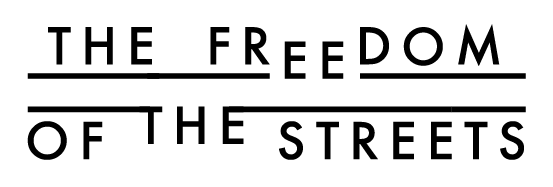Call for Papers for EAUH 2020
Gender and Everyday Mobility in Modernizing Global Cities
The Freedom of the Streets project is organizing a session at the biannual conference of the European Association of Urban History, held in Antwerp on 2-5 September 2020.
For details of the CfP, see below. To submit a paper proposal please go to EAUH’s website, using the session code (M-TRA-4). The deadline to submit paper proposals is 27 October 2019.
Short abstract:
This session investigates the relation between gender and everyday mobility in modernizing cities, re-examining the theory of ‘separate spheres.’ By tracing historical agents’ intra-city trajectories, we explore what social, material and cultural factors influenced inhabitants’ accessibility to urban space over time, using methodological approaches as GIS and the analysis of visual material.
Session content:
How did early modern people use, occupy, and mobilized themselves through urban space in their everyday life? Furthermore, how and to what extent was urban space segregated as a result of these activities? In other words, to what extent do theories of ‘separate spheres’ or ‘public-domestic dichotomies’ apply to early modern urban environments? Recent research has acknowledged that ‘ownership’ of urban space was much more complex than a division between public and private spaces or male and female spheres. This raises the need to examine further both these spaces and the way that people moved through them.
By reexamining early modern urban space as it underwent a transitional phase of so-called ‘modernization,’ the session investigates gendered use and mobility of urban space in the context of a broad range of social, economic and cultural-historical debates, such as urban household compositions, the gendered division of labor, and gendered identities and norms of behavior. By tracking people’s trajectory within urban space, we seek to capture both practices and experiences of space.
We also intend to stimulate a discussion of methodological approaches that employ time-space geography and digital mapping to shed new lights on textual material (juridical sources, travel guidebooks, personal diaries) as well as visual sources (topographical maps, paintings, prints).
The session is proposed and organized by the members of ‘The Freedom of the Streets. Gender and Urban Space in Eurasia (1600-1850),’ an NWO-funded research project at the University of Amsterdam. Along with the research questions described above, the project includes a comparative perspective. For this sake, it consists of subprojects on the relation between gender and urban space in Amsterdam and Edo (present-day Tokyo). As a result, we are also interested in issues of comparability and to what extent particularities and commonalities produce distinct ‘early modern mobilities.’
We encourage submissions from scholars who work on topics related to urban mobility in early modern periods in different civilizations and cities. Relevant topics include but are not limited to:
Social, economic, religious and leisure activities
Formal and informal uses of urban space
Intra-urban modes of transportation


